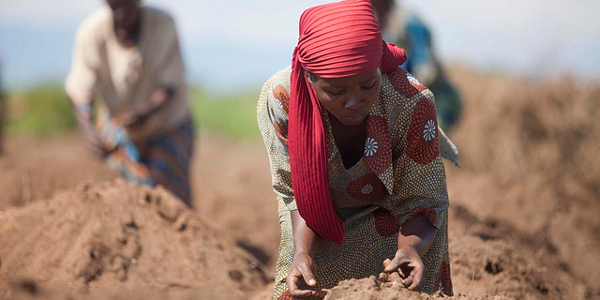You can’t go wrong with maize, says Kenya Investment Authority

“If you look at rice, beans, potatoes, almost everything, we are just not producing enough to meet the demand across the country. We are still importing quite a bit of food and therefore there are all these opportunities for investors,” says Moses Ikiara, managing director of the Kenya Investment Authority.
At the beginning of 2014 the Kenyan government officially launched Galana-Kulalu Food Project, one of the largest irrigation undertakings in East Africa. The public-private partnership aims at addressing food insecurity in the region by irrigating one million acres of land to produce maize, sugarcane and meat, alongside other crops, livestock and fish farms.
The project alone is expected to double maize output in the country, currently a net importer of the staple food.
According to Moses Ikiara, managing director of the Kenya Investment Authority, the government is beginning to view agriculture more as a business, with increasing focus on commercialising the industry. For example, sugar and cotton processing factories are set to be privatised.
Key to this is attracting foreign investment. How we made it in Africa sat down with Ikiara at the recent World Economic Forum on Africa, and spoke about some of the opportunities within the agricultural space, as well as incentives for foreign investors. Below is an edited extract.
Are there any ownership laws limiting foreign investors to purchase and operate farm land in Kenya?
For a long time in Kenya a foreigner could have a title deed and keep a lease for 999 years. In the [new Constitution] the only thing that changed is that while foreign investors still has access to land, they keep the lease for 99 years not 999. It is also renewable so if somebody is doing good business and all that, it can be renewed. So I wouldn’t say it affects the ability of foreign investors to access land in a big way… and agriculture is a huge area with many opportunities.
If you had to pinpoint one area within farming that might have the highest growth potential for investors, what would it be?
Maize is the staple food. Even if there are beans and everything else, if there is no maize then Kenyans say there is hunger because maize is the staple food.
Do you see Kenya as being a strong competitor in maize production regionally?
Absolutely. If we grow it on a large scale and invest in getting a good seed and proper input application for fertilisers and irrigation, there is no reason why we can’t compete. But also if you look at rice, beans, potatoes, almost everything, we are just not producing enough to meet the demand across the country. We are still importing quite a bit of food and therefore there are all these opportunities for investors. We have enough land – they can come and produce from that.
And is the climate suitable for farming these various crops?
It is very good – especially if somebody can come and invest in irrigation technology. Quite a big part of our land is semi-arid so it requires irrigation. But if investors can bring in that, they will find everything else here is fantastic – soil, etc.
Beef also holds big potential. Semi-arid land can be used to grow and develop a very strong beef industry. So in agriculture it is almost every sector, but we are focusing more on value addition and the government is going to offer numerous incentives to those investors who add value.
What sort of incentives?
If you invest more than US$2m you can get what we call an investment allowance… where you don’t pay any corporate tax until you have recovered 150% of your investment.
And if you want to export at least 80% of your produce to outside East Africa, you can also get a 10-year tax holiday and another 10 years of lower corporate tax. You can bring in your equipment duty free and most of it VAT free. You can also bring raw materials in duty free. And there are many other incentives the government is considering too.

